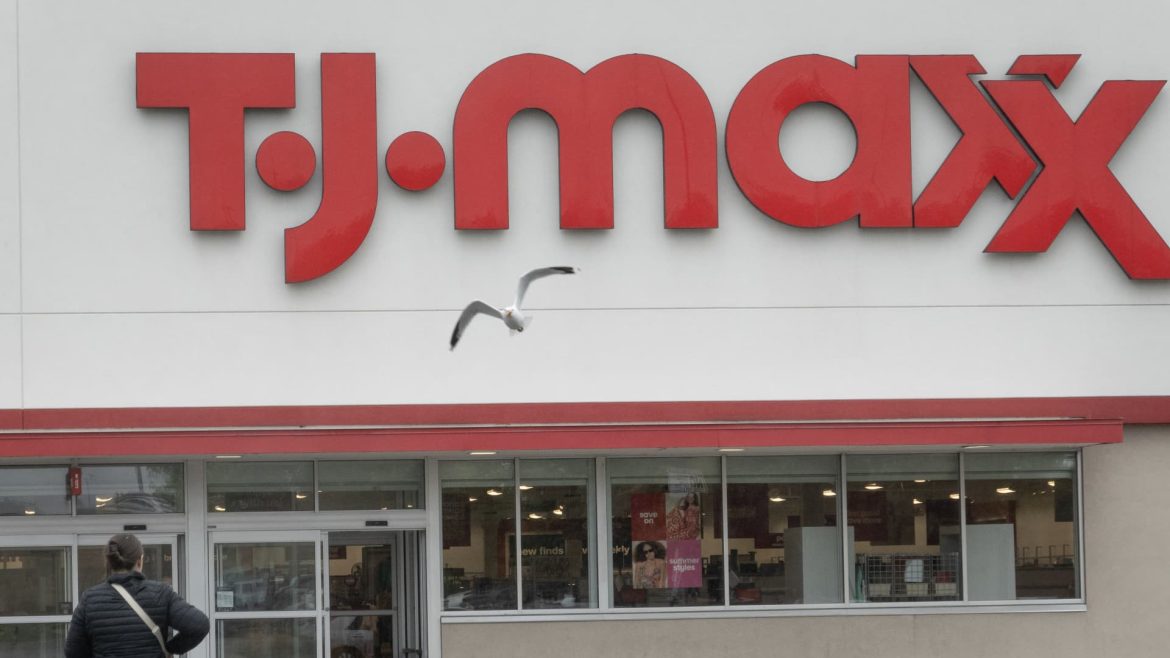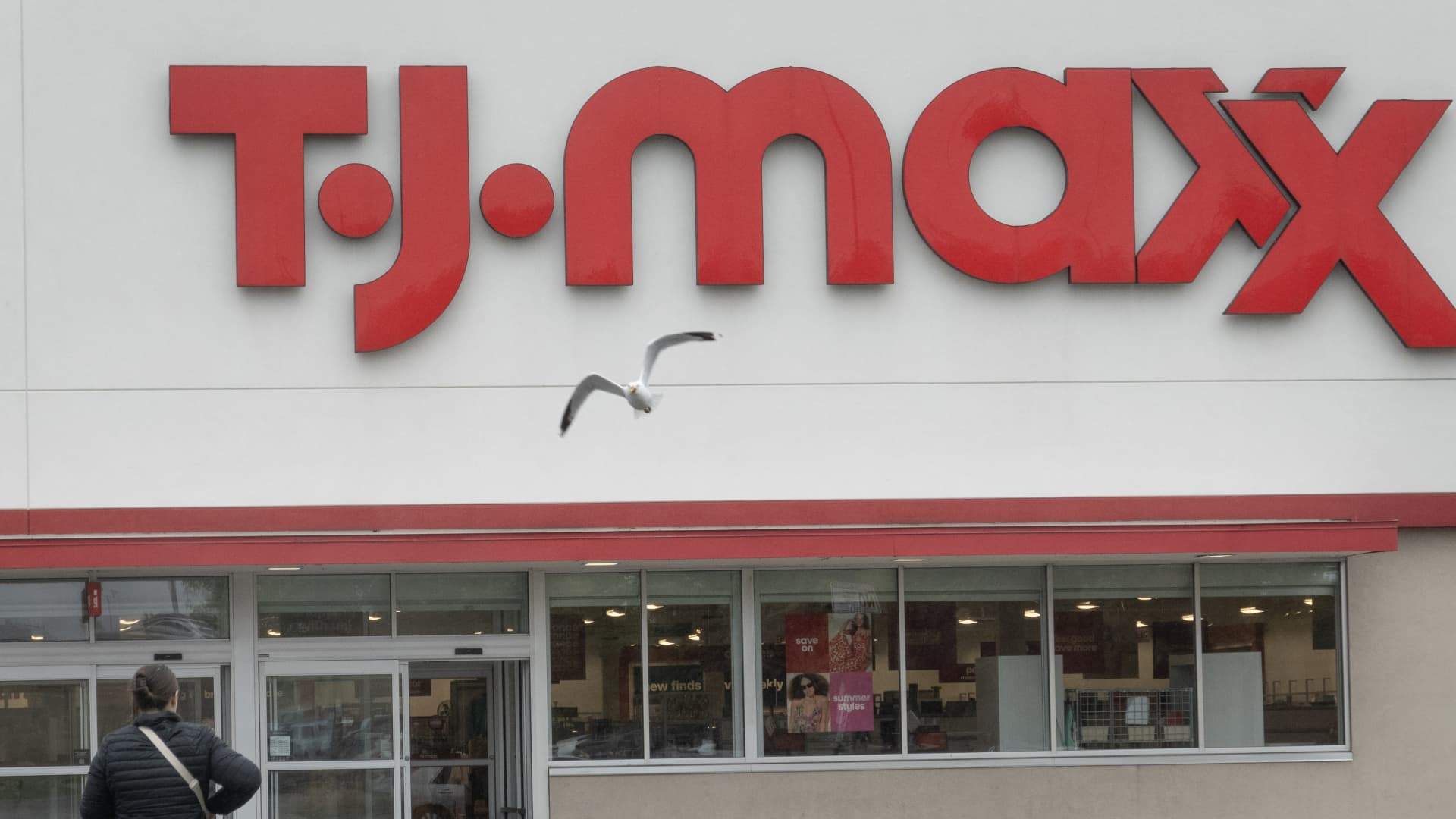Jim Cramer’s Perspective on TJX Companies and Costco Wholesale: A Deep Dive into Retail Stocks
Investing in retail stocks often requires navigating through market volatility, consumer behavior shifts, and macroeconomic pressures. Jim Cramer, a prominent market commentator, has offered detailed insights into retailers like The TJX Companies, Inc. (TJX) and Costco Wholesale Corporation (COST), reflecting on their performance, challenges, and potential opportunities. By synthesizing Cramer’s commentary and reported market data from early 2025, this analysis distills his investment thesis and outlook on these retail giants.
The Resilience and Appeal of The TJX Companies, Inc.
Business Model and Market Position
TJX operates as an off-price retailer, selling branded apparel and home goods at discounted prices. This business model has historically allowed it to maintain steady sales even during challenging economic conditions. Cramer repeatedly lauds TJX as a “winner” and “terrific,” highlighting its ability to weather broader retail sector downturns. He emphasizes that despite some recent stock volatility—including a notable loss in March 2025—the company’s underlying fundamentals remain strong.
Stock Performance and Valuation
Over the past year, TJX’s shares have shown an 18% increase but experienced a modest decline year-to-date. Cramer views any dips, such as the 6.8% loss in May and the 4% decline in early 2025, as anomalies rather than signs of systemic weakness. He regards TJX as “the best value” among retailers at the moment, identifying it as an attractive buying opportunity given its resilience and stable financial outlook.
Cramer’s optimism is grounded in recent earnings results: fourth-quarter fiscal 2025 sales came in flat year-over-year at $16.4 billion but surpassed analyst expectations of $16.2 billion. This indicates strong operational performance amid uncertain economic conditions. He also notes that TJX had “the best comps” (comparable store sales), suggesting consumer demand held firm relative to peers.
Strategic Advantages
Cramer discusses how TJX has benefited amid tariff and trade tensions, arguably turning what might have been an inventory glut into a competitive advantage by acquiring goods at favorable prices or offsetting supply chain constraints better than rivals. Additionally, Cramer remarks that TJX’s off-price model makes it somewhat immune to the inflationary pressures affecting traditional retailers, as shoppers trade down and seek bargains during tougher financial times.
He further maintains that TJX stocks may be the “most undervalued” in his portfolio, contrasting it against tech sectors like AI stocks that, while promising higher returns, carry greater risk. His bullish stance focuses on TJX’s strong fundamentals, brand recognition, and consumer loyalty through brands like T.J. Maxx.
Costco Wholesale: Stability Through Low-Price Leadership
Costco’s Business Dynamics
Costco, known for its membership-based warehouse clubs, stands out due to its low-price business model. Cramer notes the company’s shares have gained about 43% over the last year, reflecting investor confidence in its growth potential. Costco’s ability to leverage bulk purchasing and tight cost controls reinforces its position as a consumer favorite, especially amid inflation concerns.
Market Commentary
While commentators like Cramer acknowledge occasional price dips in retail stocks, he advises investors not to equate declines with doom. He highlights that the “future isn’t necessarily bad” for companies like Costco, which continue to innovate and provide value-oriented offerings. His commentary encourages investors to look beyond short-term volatility and focus on underlying business trajectories.
Broader Retail Environment and Investment Strategy
Market Volatility and Economic Factors
Recent discussions emphasize uncertainty around macroeconomic trends, inflation trends, and geopolitical tensions affecting trade and manufacturing. Cramer’s remarks about “not knowing what’s really going to happen” capture the market’s unpredictability in 2025. However, he maintains that select retail stocks, especially those with strong balance sheets and adaptive business models, remain solid investment candidates.
Comparative Outlook: Retail vs. Tech
While Cramer appreciates the value in technologically driven stocks such as Alphabet (Google) and innovative companies like Uber, he stresses diversified portfolios that include solid retail names like TJX and Costco. His acknowledgment of AI stocks’ promise versus retail’s stability presents a nuanced approach to balancing growth and value in equity investment.
Conclusion: Investing in Retail Giants with Confidence
Jim Cramer’s analysis positions The TJX Companies and Costco Wholesale as compelling retail investments in early 2025. TJX’s off-price model and operational resilience, coupled with Costco’s respected low-price and membership approach, render these stocks attractive amid a somewhat uncertain economic landscape. Cramer’s conviction in TJX’s undervaluation and Costco’s steady growth suggests a strategy centered on companies that combine consumer trust with adaptable business models.
For investors seeking retail exposure, Cramer’s insights underline the importance of discerning between fleeting market dips and structural weaknesses. Both TJX and Costco exemplify retailers that not only withstand challenges but capitalize on evolving consumer behaviors, tariff environments, and inflationary pressures. Investing in these stocks speaks to confidence in the enduring strength of value-driven retail franchises in a changing marketplace.





